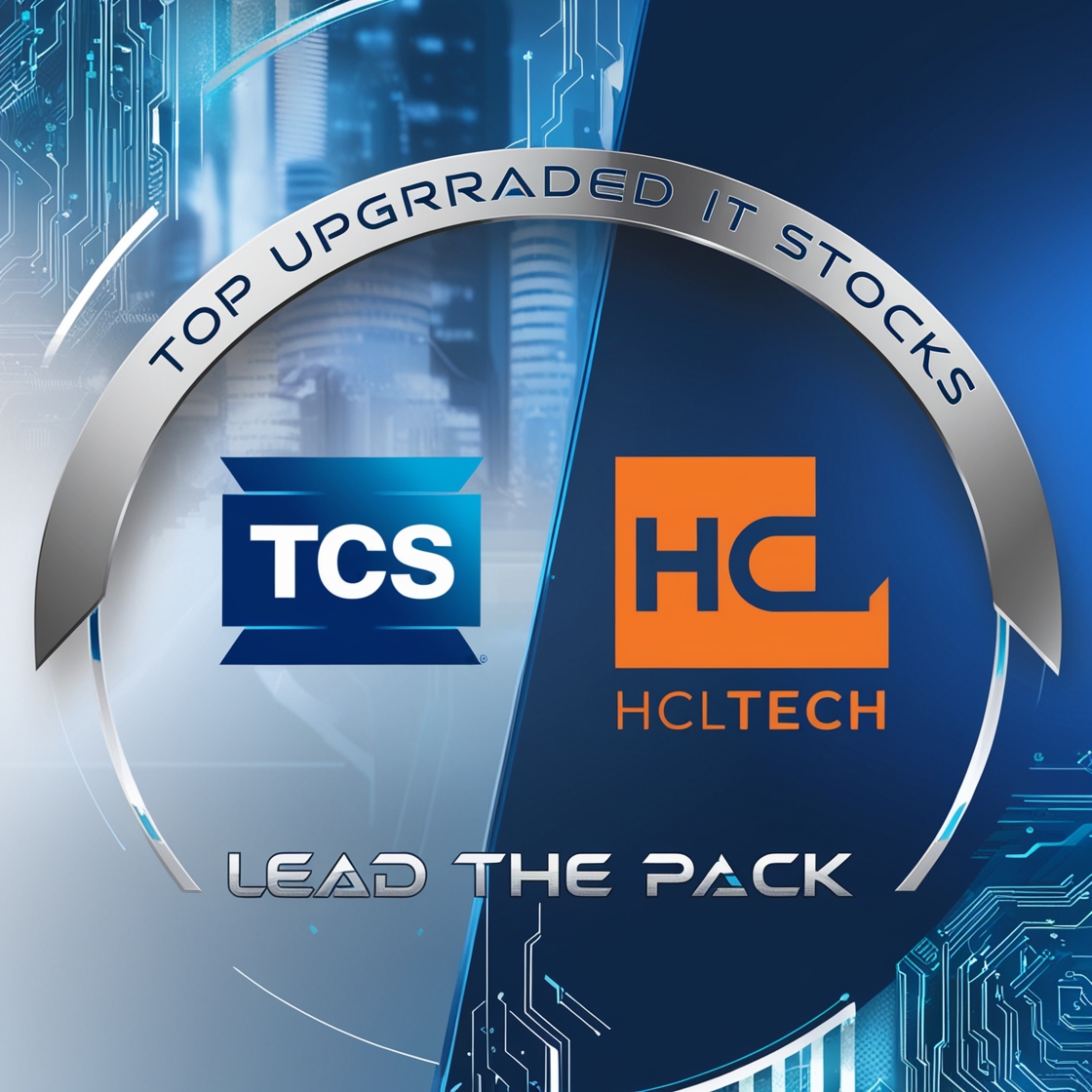HCLTech Anticipates Q2FY25 Rebound Despite Q1 Challenges
Tata Consultancy Services (TCS) and HCL Technologies (HCLTech) emerged as the top upgraded IT stocks in July, securing positions in the top 10 Nifty stocks with the highest analyst upgrades over the last quarter. Despite a challenging macroeconomic environment, brokerages are optimistic about the long-term prospects of these tech giants, attributing their confidence to strong deal flows and recovery in the BFSI and manufacturing sectors.
Analyst Ratings: A Mixed Bag for HCLTech and TCS
Among the 43 brokerages covering HCLTech, 21 issued a ‘Buy’ rating, while the remaining 22 recommended either ‘Hold’ or ‘Sell.’ In contrast, TCS received a ‘Buy’ recommendation from 29 out of 47 brokerages. This demonstrates a stronger consensus among analysts for TCS compared to HCLTech.
Financial Performance: A Tale of Two Companies
In the first quarter, HCLTech experienced a 1.6 percent sequential revenue decline, bringing in Rs 28,057 crore. On the other hand, TCS reported a 2.2 percent quarter-on-quarter revenue increase, reaching Rs 62,613 crore. This growth was driven by robust performance in the manufacturing sector and expansion in the UK market.
Following TCS’s impressive Q1 results, major brokerage firms such as Jefferies, Nomura, and Nuvama upgraded their ratings and target prices for the company, reflecting renewed confidence. Conversely, HCLTech’s June quarter earnings led brokerages like Nomura, Kotak Institutional Equities, and Citi Research to raise their target prices for the stock.
Positive Outlook for FY25: Broad-Based Recovery Anticipated
TCS achieved an EBIT margin of 24.7 percent, exceeding estimates despite a slight decline from the previous quarter. The company’s focus on high-ROI cost optimization projects and strong performance in the BFSI sector contributed to its positive outlook for FY25. Management expressed long-term optimism, expecting broad-based growth across various verticals and geographies. However, TCS remains cautious about near-term demand due to unfavorable global macroeconomic conditions.
HCLTech, despite revenue and margin declines, remains hopeful for a Q2FY25 rebound. The company expects sequential growth across most verticals, with the exception of financial services. HCLTech has maintained an organic revenue growth guidance of 3-5 percent in constant currency for FY25, with an EBIT margin target of 18–19 percent. The company’s new initiatives, such as its Gen AI platforms, are poised to capitalize on emerging demand and support future growth. Analysts also praised HCLTech’s stable Q1 performance and healthy deal intake.
Analyst Insights: HCLTech vs. Infosys
Brokerages noted that HCLTech’s Q1FY25 performance met expectations, emphasizing the need for continued deal wins and efficient execution to drive future growth. Nuvama’s post-earnings report highlighted that HCLTech is currently trading at a 5 percent discount to Infosys, a notable improvement from the historical 15-20 percent discount. This shift is largely attributed to HCLTech’s higher growth in FY24 and expected growth in FY25.
Market Performance: TCS and HCLTech Share Price Movements
As of 9:20 am, HCLTech shares were trading nearly 2 percent higher at Rs 1,587, while TCS shares were up 1.8 percent at Rs 4,245. Despite a 12 percent gain in July, both stocks declined over 3 percent in August, mirroring the broader Nifty50 decline this month.
Conclusion: Optimism Amid Challenges
In summary, TCS and HCLTech have shown resilience and promise despite a challenging macroeconomic environment. Analysts remain optimistic about their long-term prospects, driven by strong deal flows, sector recoveries, and strategic initiatives. While near-term challenges persist, the positive outlook for FY25 and beyond positions these IT giants for continued success.
Disclaimer
The information provided in this article is for general informational purposes only and is not intended as investment advice. The views and opinions expressed are those of the authors and do not necessarily reflect the official policy or position of any brokerage or financial institution. Readers should perform their own research and consult with a qualified financial advisor before making any investment decisions. The author and the publisher are not responsible for any investment decisions made based on the information provided in this article.











